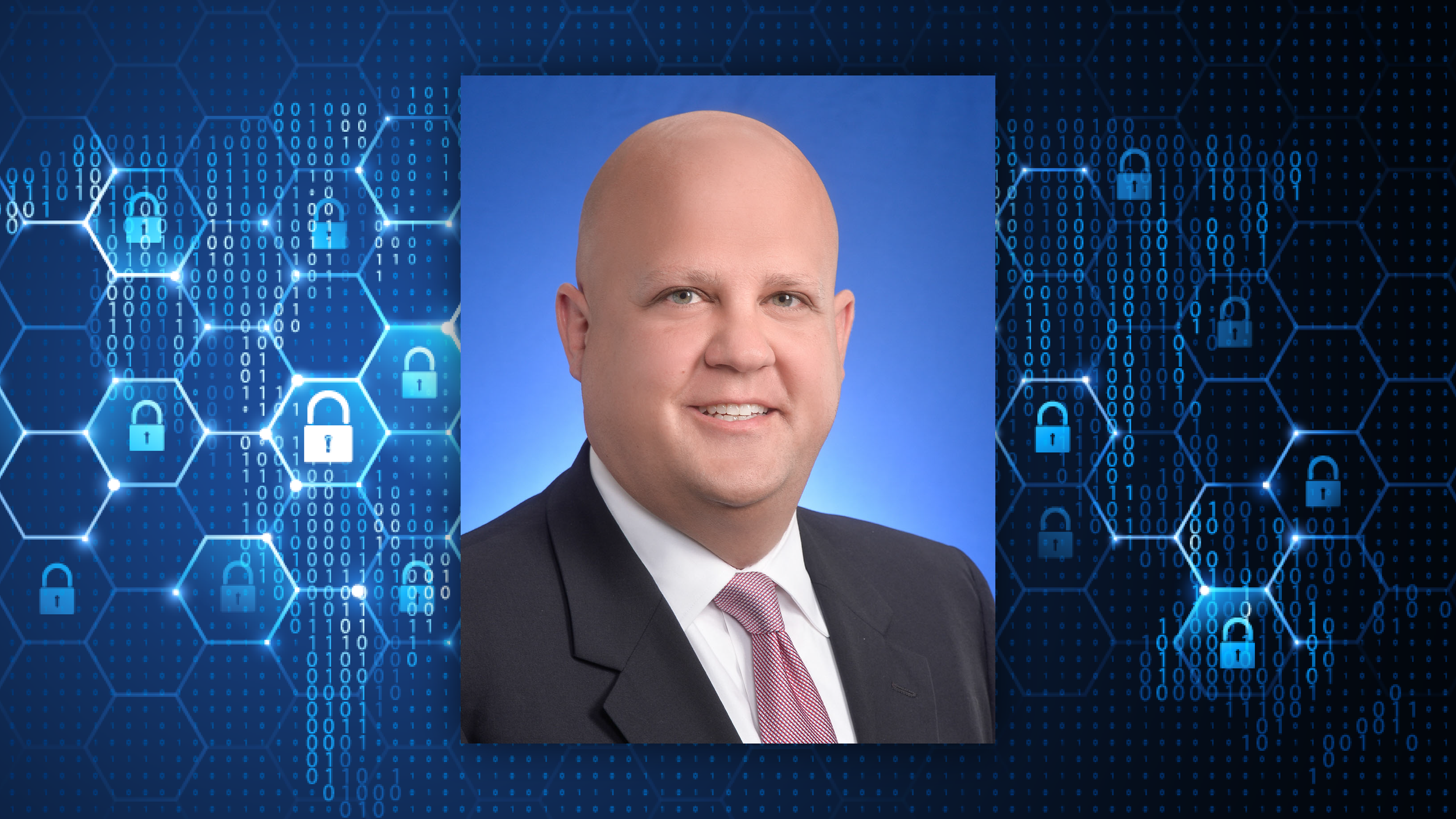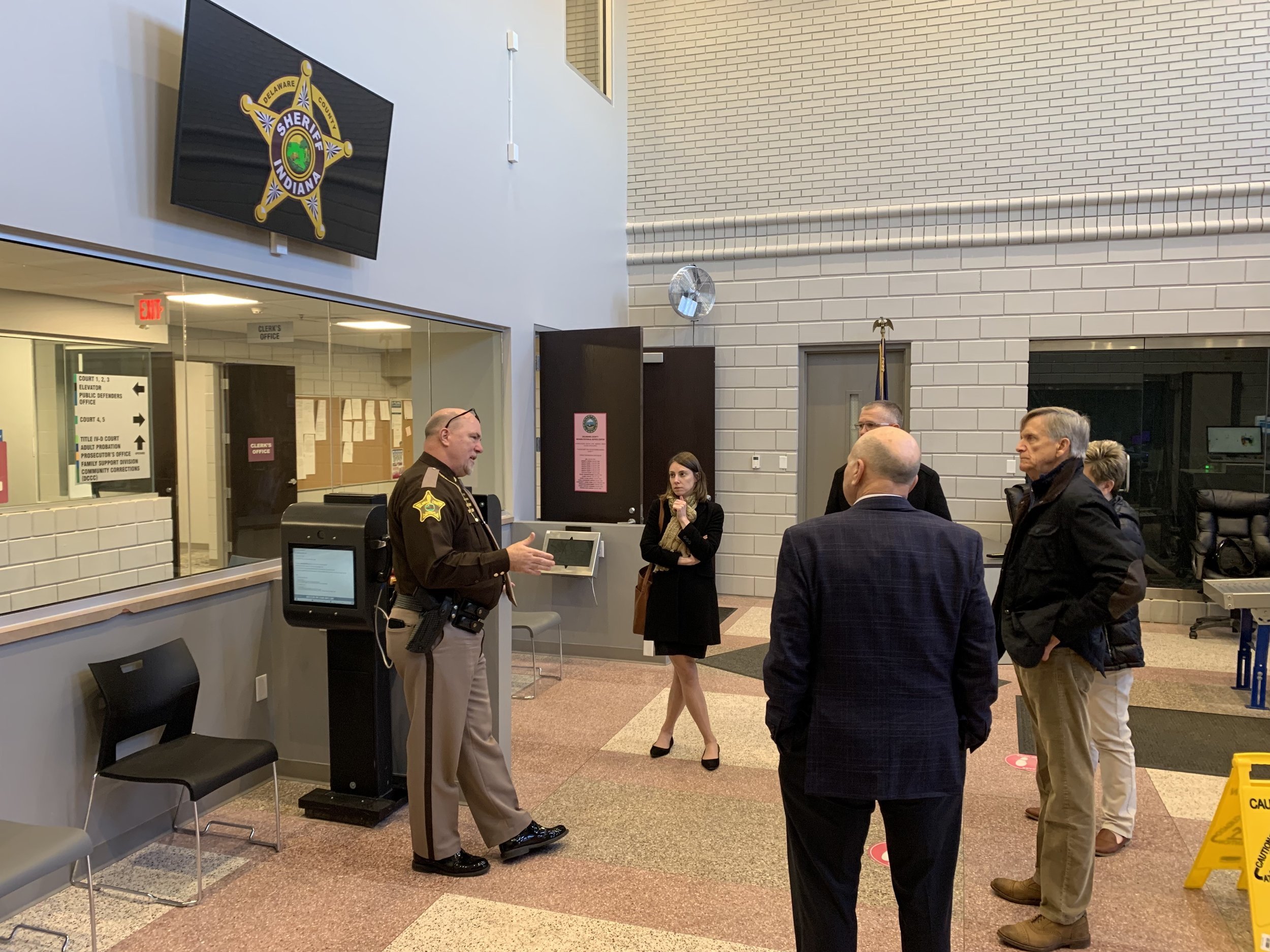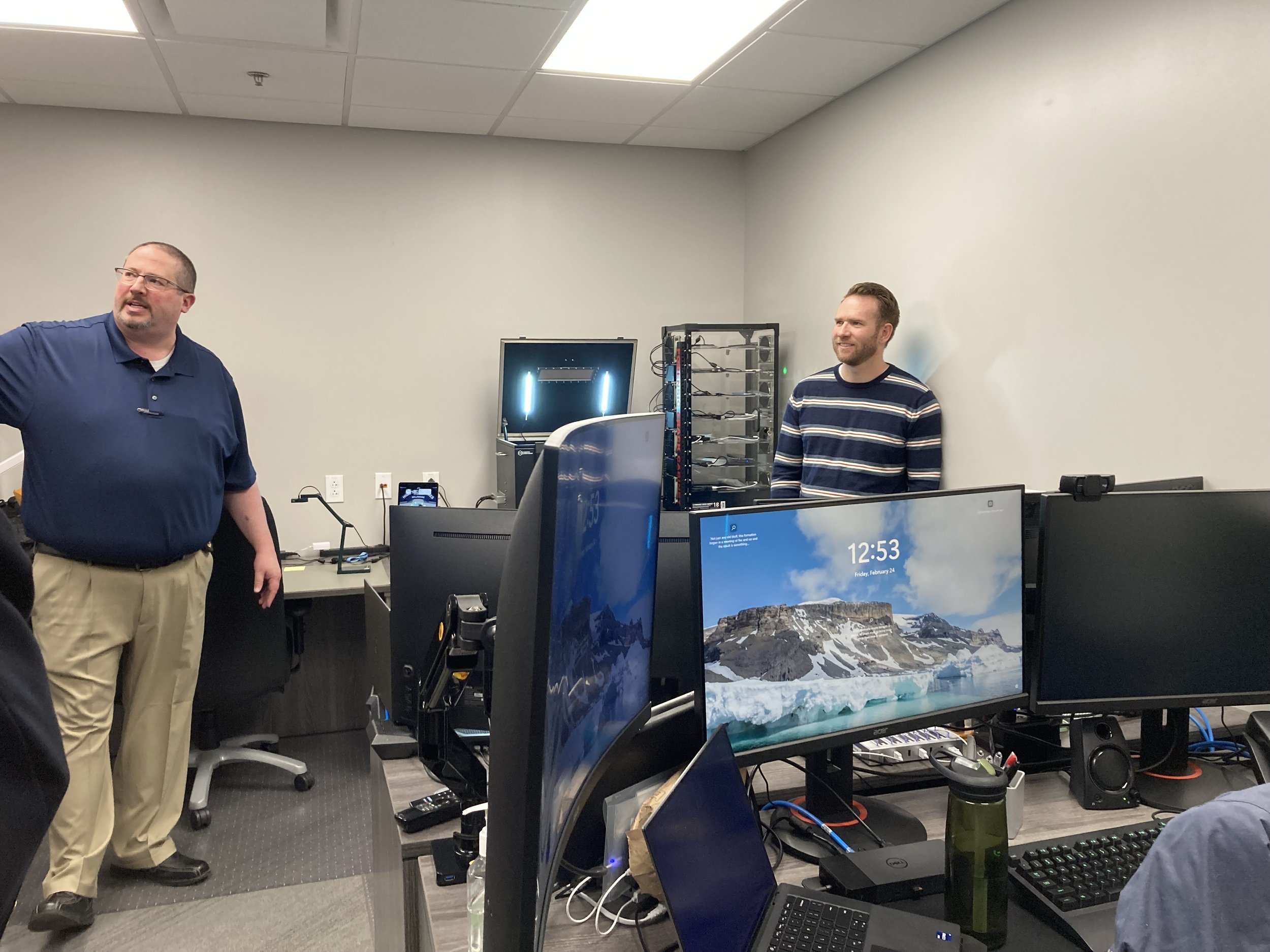Grantee Spotlight: Q&A with Delaware County Prosecutor on cybercrime in East Central Indiana
Delaware County Prosecutor Eric M. Hoffman
Cybercrime is a growing problem across the world and right here at home. Local businesses, nonprofits, and school districts have all been victims of cyberattacks. Individuals often fall victim to scams, and digital devices are often used in crimes of all kinds. Ball Brothers Foundation provided early funding for fighting local cybercrime through an initiative the foundation launched in 2020 called “Project Sybertooth.” Funding was initially awarded to Ivy Tech to create three cybersecurity courses tailored for a cohort of officers from the Muncie Police Department, the Delaware County Sheriff’s Office, and the Ball State University Police Department. Additional funding awarded in 2021 and 2022 allowed these three law enforcement agencies—along with the Delaware County Prosecutor’s Office—to purchase equipment, obtain software licenses, build infrastructure for cybercrime internship opportunities, and pursue additional training.
This initial funding from Ball Brothers Foundation helped the Delaware County Prosecutor’s Office successfully compete with counties from across the state to be selected to house one of ten “High Tech Crimes Units” established in 2022. Filled with high-tech equipment, the unit serves as a central repository for law enforcement agencies across the region to send digital devices for forensic analysis—including cellphones, tablets, and laptops. The director of the unit, Chuck Zimmers, is aided by officers appointed by the Delaware County Sheriff’s Department and the Muncie Police Department who collect and analyze digital evidence in a range of criminal investigations. And just as important as it is to find evidence that can be used in court by prosecutors, the departments are also able to work together to identify evidence on digital devices that can prove suspects’ innocence.
Check out our latest Q&A with Delaware County Prosecutor Eric M. Hoffman to learn more:
-
In response to the question of how prevalent is cybercrime across East Central Indiana I would say everywhere. Almost everyone in society carries a cell phone everywhere they go. Given today’s technology, a cell phone is a small computer. Our cell phones interact with multiple pieces of technology around us continually whether we are aware of it or not. No matter how careful a perpetrator may be, they will leave some type of digital footprint or incriminating evidence. Even a lack of information helps shape an investigation.
Homicide and drug offenses generate the largest volume of devices submitted to the High Tech Crimes Unit (HTCU).
-
The sheer volume of devices and the ever-increasing storage capacity of these devices is staggering. Until the creation of the HTCUs across Indiana this massive burden, at the state and local level, was placed on the Indiana State Police Cyber Lab. The ISP Cyber Lab leads Indiana in the field of Digital Forensics and Incident Response (DFIR) but with that being said, the volume of work is staggering and the ever-increasing backlog is a problem everywhere in this field. The Indiana General Assembly created the HTCUs in an effort to lift some of the burden off the ISP Cyber Lab.
We are generally able to provide a finished product to the submitting law enforcement agency within a two-month time frame and often sooner. Prior to the HTCUs, the turnaround time with the ISP Cyber Lab was six to nine months if not longer. With more hands lifting the burden, it becomes lighter and the process quicker.
-
A typical day will always involve the extracting and processing of digital data from cell phones, home video surveillance systems, computers, and other electronic devices. We have had a steady flow of devices since the unit started accepting cases. The processing of a case may involve multiple tools and a significant amount of time. Analysts often need to communicate with the submitting officer as they proceed through the case to tailor the analysis to the specific case. Analysts also frequently conduct research into new devices, software, apps etc. as they work a case.
Our staff will frequently be involved in training as this is a vast and ever-changing field. The software and tools used in the HTCU are complex and constantly updated by the vendors to keep up with device changes. Trainings are tool specific or topic specific. Analysts also earn certifications from a variety of entities. These certifications often require testing to achieve and renew.
-
The HTCU has an eleven-county service area, and at this point we have received cases from 22 different county, municipal, hospital and university police departments within our service area. We have also worked cases for federal agencies and assist local agencies outside our service area when requested.
-
The HTCU has been in discussions with the CICS department at Ball State University to create an internship program in the HTCU. We are in the early stages of planning and hope to create a program that requires a two-year commitment and will offer practical experience in the field of digital forensics. The plans include training in forensic tools used by the HTCU and from entities not available outside of the law enforcement community. The HTCU employs a recent graduate of the CICS program as one of our analysts.
-
The HTCU has already outgrown its space within the Prosecutor’s Office. As a result, the HTCU is currently involved in a multi-phase expansion program. The Delaware County Commissioners have provided the Unit with space in the Delaware County Building to be used as the new home of the HTCU. Renovations for the phase 1 space have begun. Architectural designs have been obtained, build out quotes have been received, and demolition of the current space is complete. Phase 1 will house the current HTCU staff and services. Phase 1 will triple the current space. Analysts in the Unit eagerly await completion of phase 1 as they are currently very cramped which adds to the difficulty of their work.
Phase 2 will include the addition of a large training room and associated facilities that will be used to host trainings in digital forensic tools and topics. These trainings will be for the law enforcement community, interns, students and members of our community. One benefit of having such a facility is the ability to bring experts in the field to Muncie to train our analysts and share their expertise.
Phase 3 will include several smaller training rooms to be used in the expansion of the internship program and trainings available to university students. This expansion will also include offices used to expand HTCU staffing and available services.
BBF staff and board members visit the Delaware County High Tech Crimes Unit.



